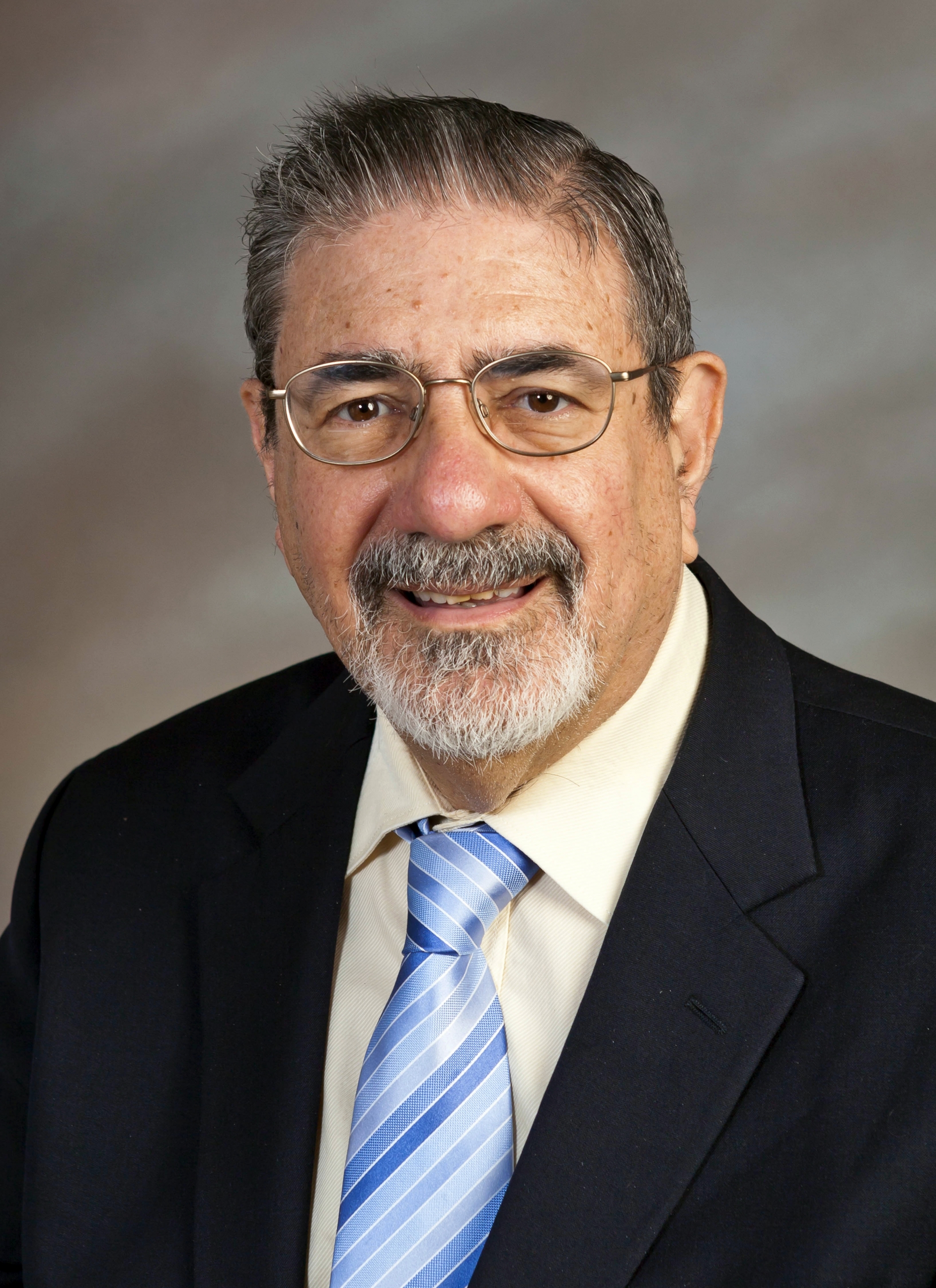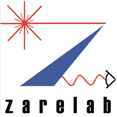Richard N. Zare, Ph.D.: Biosketch
Department of Chemistry
Stanford University
Richard N. Zare is the Marguerite Blake Wilbur Professor in Natural Science at Stanford University. He was born on November 19, 1939, in Cleveland, Ohio, and is a graduate of Harvard University, where he received his B.A. degree in chemistry and physics in 1961 and his Ph.D. in chemical physics in 1964. In 1965 he became an assistant professor at the Massachusetts Institute of Technology, but moved to the University of Colorado in 1966, remaining there until 1969 while holding joint appointments in the departments of chemistry, and physics and astrophysics. In 1969 he was appointed to a full professorship in the chemistry department at Columbia University, becoming the Higgins Professor of Natural Science in 1975. In 1977 he moved to Stanford University. He was named Chair of the Department of Chemistry at Stanford University in 2005 and served in that capacity for six years. In 2006 he was named a Howard Hughes Medical Institute (HHMI) Professor.
Professor Zare is renowned for his research in laser chemistry, resulting in a greater understanding of chemical reactions at the molecular level. By experimental and theoretical studies, he has made seminal contributions to our knowledge of molecular collision processes and contributed very significantly to solving a variety of problems in chemical analysis. His development of laser induced fluorescence as a method for studying reaction dynamics has been widely adopted in other laboratories.
Professor Zare has received numerous honors and awards. They include: Phi Lambda Upsilon’s Fresenius Award (1974), Michael Polanyi Medal, the Gas Kinetics Group of the Royal Society of Chemistry (1979), the APS Earle K. Plyler Prize (1981), Spectroscopy Society of Pittsburgh Award (1983), the National Medal of Science (1983), the Evans Award and Lectureship, Department of Chemistry, The Ohio State University (1984), the ACS (Maryland Section) Remsen Award (1985), the ACS (Rochester Section) Harrison Howe Award (1985), the APS Irving Langmuir Prize (1985), the ACS (New Haven Section) Kirkwood Medal (1986), Michelson-Morley Award, Case Western Reserve University (1986), the ACS (Chicago Section) Willard Gibbs Medal (1990), the ISCO Award for Significant Contributions to Instrumentation for Biochemical Separations (1990), The National Academy of Sciences Award in Chemical Sciences (1991), the ACS Peter Debye Award in Physical Chemistry (1991), The Harvey Prize (1993), the Dannie-Heineman Preis (1993), the ACS (Puget Sound, Oregon and Portland Sections) Pauling Award (1993), the ACS (Division of Analytical Chemistry) Award in Chemical Instrumentation (1995), NASA Exceptional Scientific Achievement Award (1997), the California Scientist of the Year Award (1997), the Eastern Analytical Symposium Award for Outstanding Achievements in the Field of Analytical Chemistry (1997), National Science Board’s Distinguished Service Award (1998), the ACS (Auburn Section) G. M. Kosalapoff Award (1998), the ACS Award in Analytical Chemistry (1998), the Centennial Medal, Graduate School of Arts and Sciences, Harvard University (1998), the ACS E. Bright Wilson Award in Spectroscopy (1999), the Welch Award in Chemistry (1999), the APS Arthur L. Schawlow Prize in Laser Science (2000), the ACS (North Alabama Section) Madison Marshall Award (2000), the California Separation Science Society Scientific Achievement Award (2000), the ACS Nobel Laureate Signature Award for Graduate Education (2000), Royal Society of Chemistry Faraday Lecture (2001), the ACS Charles Lathrop Parsons Award (2001), the ACS (Sierra Nevada Section) Distinguished Chemist Award (2002), the ACS (New York Section) Nichols Medal (2004), the Chandler Medal, Department of Chemistry, Columbia University (2005), Pupin Medal “for service to the nation,” Columbia University School of Engineering (2005), the Wolf Prize in Chemistry, Israel (2005), the ACS (University of Cincinnati and Cincinnati Section) Oesper Award (2006), the Dudley R. Herschbach Award for Excellence in Research in the field of Collision Dynamics, Dynamics of Molecular Collisions Meeting, Santa Fe (2007), the H. Julian Allen Award, NASA Ames Research Center (2007), the Texas A&M University, Department of Chemistry, and Texas A&M Section, ACS, F. A. Cotton Medal for Excellence in Chemical Research (2009), the ACS (Northeastern Section) Richards Medal (2010), the ACS Priestley Medal (2010), the BBVA Foundation Frontiers of Knowledge Award in the Basic Sciences category (shared with Michael E. Fisher) (2010), the Honorary Fellow of the Chinese Chemical Society (elected 2010), the R. B. Bernstein Award in Stereodynamics (shared with R.D. Levine) (2010), the King Faisal International Prize in Science (shared with George M. Whitesides) (2011), Honorary Membership into the Japan Society for Analytical Chemistry (2011), the Einstein Professorship of the Chinese Academy of Sciences (2011), the Torbern Bergman Medal (2012), the International Science and Technology Cooperation Award of the People’s Republic of China (2012), and the Othmer Gold Medal from the Chemical Heritage Foundation (2017). He will receive the Harry and Carol Mosher Award of the ACS Silicon Valley Section (2023) and the Benjamin Franklin Medal in Chemistry from the Franklin Institute (2023).
Teaching awards: Stanford University’s Dean’s Award for Excellence in Teaching (1987), the Bing Fellowship Award, “to recognize excellence in teaching and commitment to undergraduate education,” Stanford University (1996), the Allan V. Cox Medal for Faculty Excellence Fostering Undergraduate Research, Stanford University (1997), the Laurance and Naomi Carpenter Hoagland Prize for excellence in undergraduate education, Stanford University (2003), the ACS (Northeastern Section) James Flack Norris Award for Outstanding Achievement in the Teaching of Chemistry (2004), the ACS George C. Pimentel Award in Chemical Education (2008), and the Presidential Award for Excellence in Science, Mathematics, and Engineering Mentoring (2009).
Professor Zare holds honorary degrees from: the University of Arizona (1990), Northwestern University (1993), Eidgenössische Technische Hochschule Zürich (1993), Uppsala University (2000), Columbia University (2000), The University of York (2001), The State University of West Georgia (2001), Hunan University (2002), Université Paul Sabatier (2003), Chalmers Institute of Technology (2007), the University of South Florida (2013), and the University of Edinburgh (2016), and the University of Crete (2022).
He is a member of the National Academy of Sciences (1976), the American Academy of Arts and Sciences (1976), American Philosophical Society (1991), and the World Jewish Academy of Sciences (2004). Fellow of the American Physical Society (1969), American Association for the Advancement of Science (1985), the Association for Women in Science (2008), the American Chemical Society (2009), and TWAS, The World Academy of Sciences (2009). Honorary Fellow of California Academy of Sciences (1991), the Society of Chemistry (2001), the Chemical Research Society of India (CRSI) (2007), and the Indian Academy of Sciences (2008). Non-Resident Fellow of the Joint Institute of Laboratory Astrophysics (1969). Foreign Member of the Royal Society (London) (1999), the Chinese Academy of Sciences (2004), and the Swedish Royal Academy of Engineering Sciences (2004).
During 1992-1995, Professor Zare chaired the National Research Council’s Commission on Physical Sciences, Mathematics, and Applications, and chaired the National Science Board during the last two years of his 1992-1998 service. In 1997-2000 Professor Zare served as the Chair of the President’s National Medal of Science Selection Committee. In 2007, he was appointed to be an advisor to the Camille and Henry Dreyfus Foundation and became a member of the Board of Directors in 2010 and served in that capacity until 2023. In 2012 Professor Zare was appointed chair of the Committee on Science, Engineering and Public Policy (COSEPUP) of the three academies, the National Academy of Sciences, the National Academy of Engineering, and the Institute of Medicine but stepped down in 2016. He served for 25 years as Chairman of the Board of Directors at Annual Reviews, Inc. before stepping down to become a member of the Board of Directors.
Professor Zare has given named lectures at numerous universities, authored and co-authored over 1100 publications and more than 50 patents, and published four books.

